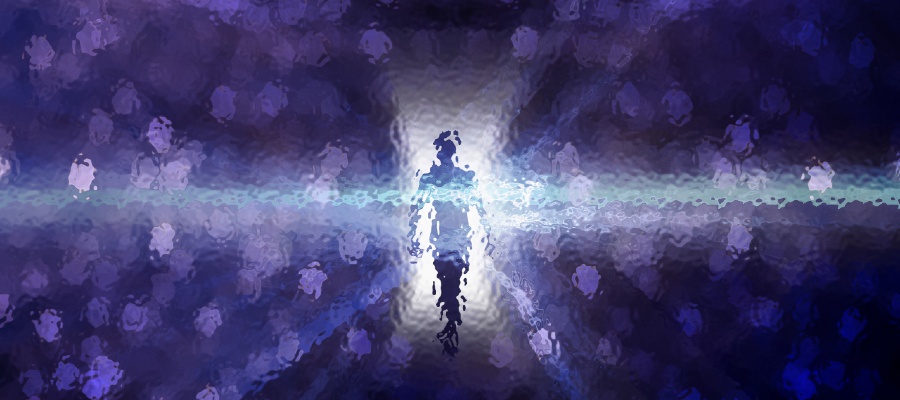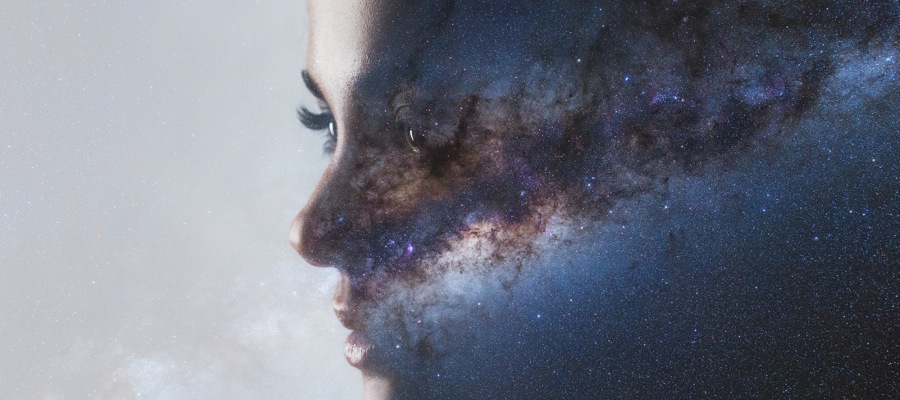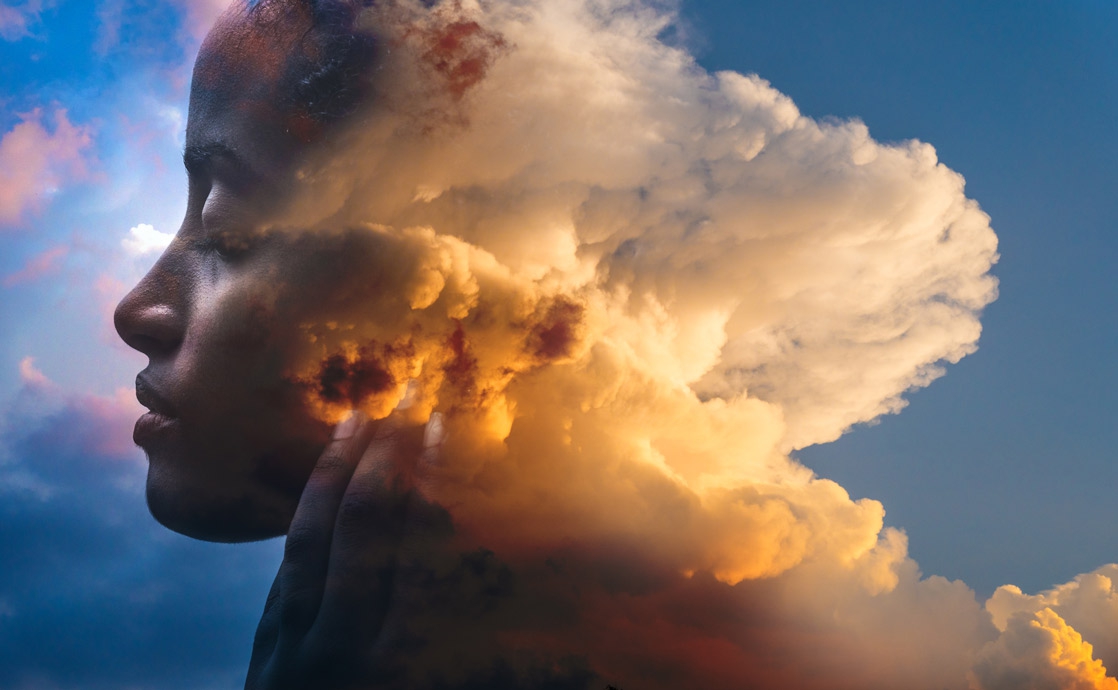The views expressed in our content reflect individual perspectives and do not represent the authoritative views of the Baha'i Faith.
We spend nearly one-third of our lives sleeping and we can’t function physically without it. But I’ve often wondered if there is also a spiritual reason we need to sleep — and dream.
Does our need for sleep coincide with a desire to enter a world where the spirit can roam free without the limitations of the physical body? Dreams are one of the most fascinating phenomena that we experience in our lives, and the Baha’i writings have an answer for every question I’ve ever had about this subject.
What Are Dreams and Why Do We Have Them?

Baha’u’llah, the prophet and founder of the Baha’i Faith, wrote that “God embraceth worlds besides this world, and creatures apart from these creatures.” He explained that the world we live in while we’re awake is completely different and separate from the dream world, which is within us and has “neither beginning nor end.”
Baha’u’llah wrote that when our spirits transcend “the limitations of sleep” and detach from “all earthly attachment,” God lets us travel throughout “a realm which lieth hidden in the innermost reality of this world.” In this dream realm, there may be messages to meditate on and secrets to discover.
What Happens to Our Souls When We Dream?

It’s fascinating to think of what traveling looks like without physical means. When we are awake, there is a limit to how fast we can travel on public transportation, but, according to the Baha’i writings, we can travel throughout the planet “in sleep, in the twinkling of an eye.” In the early 1900s, Abdu’l-Baha, the son of Baha’u’llah and his designated successor and interpreter of the Baha’i writings, called this “spiritual traveling.”
Abdu’l-Baha explained, “In the time of sleep this body is as though dead; it does not see nor hear; it does not feel; it has no consciousness, no perception—that is to say, the powers of man have become inactive, but the spirit lives and subsists. Nay, its penetration is increased, its flight is higher, and its intelligence is greater.”
It seems like our spiritual powers and abilities are limitless when we dream. To help us understand this freedom we have when our physical bodies are not in charge, Abdu’l-Baha used the analogy of a bird in a cage: “Our body is like the cage, and the spirit is like the bird. We see that without the cage this bird flies in the world of sleep; therefore, if the cage becomes broken, the bird will continue and exist. Its feelings will be even more powerful, its perceptions greater, and its happiness increased.”
Do Dreams Predict the Future?

Abdu’l-Baha further explained the powers and freedoms our spirits have in the dream world. He said, “in the state of sleep without eyes it sees; without an ear it hears; without a tongue it speaks; without feet it runs.”
So, how much importance should we place on the events that take place in our dreams? If our perceptions and intelligence are greater in this state, can our dreams provide us with worthy insight into the future?
When asked about the immortality of the spirit, Abdul-Baha referenced dreams. He said:
“How often it happens that it [the spirit] sees a dream in the world of sleep, and its signification becomes apparent two years afterward in corresponding events. In the same way, how many times it happens that a question which one cannot solve in the world of wakefulness is solved in the world of dreams. In wakefulness the eye sees only for a short distance, but in dreams he who is in the East sees the West. Awake he sees the present; in sleep he sees the future.”
I know I’ve had dreams that predicted my father’s health scare, and other dreams that predicted the birth of some of my nieces and nephews. Dreams can serve as warnings, reminders, or exciting glimpses into the future. But how can we know which dreams will come true and which won’t? I know I go through times when many of my dreams seem like they could have a lot of merit, and other times, it feels like everything I’m dreaming is complete nonsense. So, is it something we are doing wrong? Do we have control over the accuracy of our dreams?
Do All Dreams Come True?

The Baha’i writings tell us there is no doubt that “truth is often imparted through dreams” but at the same time, dreams and visions are always “influenced more or less by the mind of the dreamer and we must beware of attaching too much importance to them.”
In a letter written in 1925 on behalf of Shoghi Effendi, the Guardian of the Baha’i Faith, he wrote, “The purer and more free from prejudice and desire our hearts and minds become, the more likely is it that our dreams will convey reliable truth, but if we have strong prejudices, personal likings and aversions, bad feelings or evil motives, these will warp and distort any inspirational impression that comes to us.”
So, he advised us to strive to “become pure in heart” and detached from everything that is not good and godly. Then, he wrote, “our dreams as well as our waking thoughts will become pure and true.”
What Causes Bad Dreams?

Just because some dreams won’t come true, it doesn’t mean they can’t be coherent, relaxing, or exciting. But, sometimes we have delusions or nightmares — bad dreams that are uncomfortable, scary, or stressful. After speaking with Abdu’l-Baha about dreams, Mrs. May Maxwell, an early American Baha’i, said her conversation with him led her to understand that these dreams result from “various influences like fatigue, fear, etc.” These confusing dreams are created when our bodies influence our souls‚ as opposed to our souls influencing our bodies.
Abdu’l-Baha said that we have three kinds of dreams, and the confused dream is the one type of dream that has no truth or significance. For example, Abdu’l-Baha said, “during the day a man becomes engaged in a quarrel and dispute. Later, in the world of the dream, these same circumstances appear to him. This is a confused dream. It has no interpretation and contains no discoveries. Before the person dreamed, he was overcome with delusions. It is clear that this kind of dream bears no interpretation and is confused.”
What Does it Mean When You Dream About Someone Who Has Passed Away?

As a Baha’i, it gives me so much solace and comfort to know that, as Abdu’l-Baha explained, although “Those who have ascended have different attributes from those who are still on earth, yet there is no real separation.” Since time is an illusion while we are in this earthly realm, what we know of as time does not exist in the afterlife. In addition, prayer helps our spirits transcend the physical limitations we have and connect to our angels and ancestors while we are still here.
Abdu’l-Baha said, “In prayer there is a mingling of station, a mingling of condition. Pray for them as they pray for you! When you do not know it, and are in a receptive attitude, they are able to make suggestions to you, if you are in difficulty. This sometimes happens in sleep.” So, if we pray before we go to bed and are receptive to the wisdom of those who have come before us, we just may meet them and receive guidance in the world of dreams.
Indeed, Abdu’l-Baha wrote, “When thou desirest and yearnest for meeting in the world of vision; at the time when thou art in perfect fragrance and spirituality, wash thy hands and face, clothe thyself in clean robes, turn toward the court of the Peerless One, offer prayer to Him and lay thy head upon the pillow. When sleep cometh, the doors of revelation shall be opened and all thy desires shall become revealed.”
You May Also Like
Comments

















But at some case i could not understand because of weak in English.
Abdu’l-Baha said that we have three kinds of dreams, and the confused dream is the one type of dream that has no truth or significance. ”